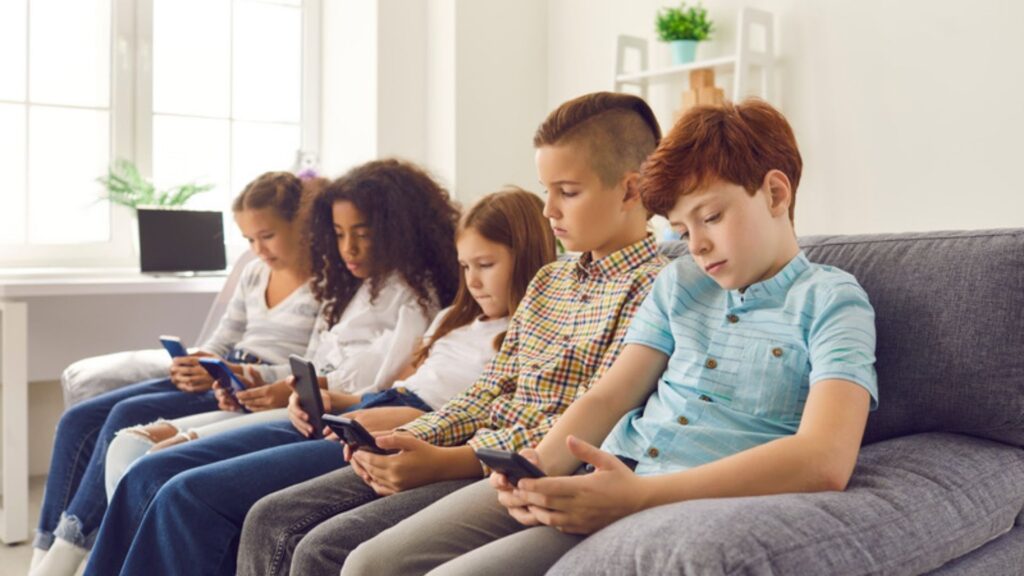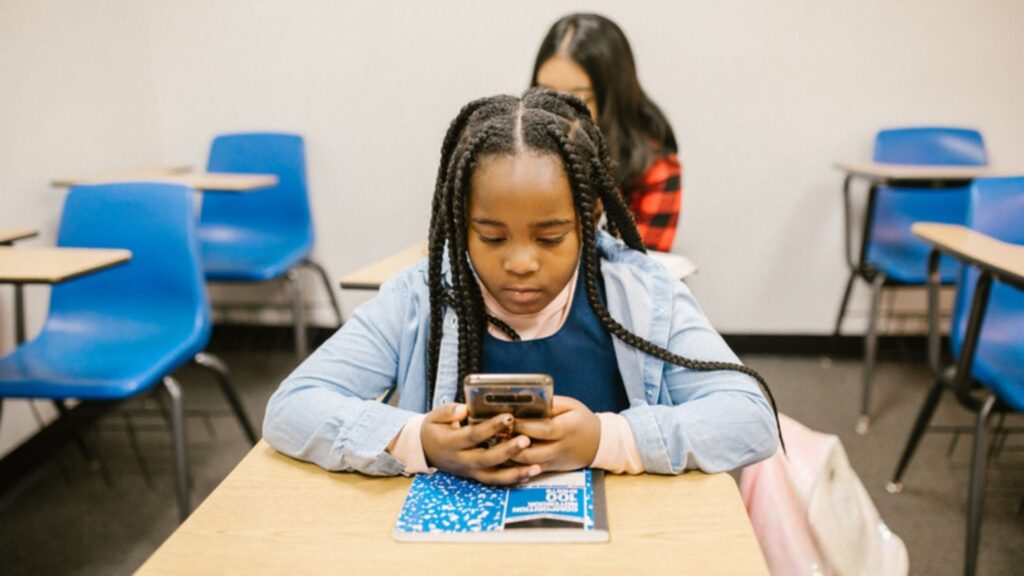When Should Kids Be Given Cell Phones?

The technological age has brought computers, tablets, and cell phones into societal life. Gone are the days when people walked freely without some communications device. Most Americans own a cell phone and use it regularly. Children are now being raised with increasing access to screens, but there are serious known risks to allowing this, and so concerned parents are asking, “When should kids be given cell phones?”
Common sense media found that the number of 8-10 year old children who have a cell phone nearly doubled between 2015 and 2021. It also determined that most children received their first cell phone when they were around 12 or 13. While there are no specific guidelines instructing parents as to what age is best, many pediatricians agree that waiting until kids are mature enough to handle the effects is best.
90% of the human brain is developed within a child’s first six years of life. Access to cell phones during this period can be especially damaging being that cell phone radiation can harm their physical development, phones emit blue light that interferes with proper sleep schedules, and staring at screens is addictive. Preventing young children from having access to them allows them to grow and mature without these serious issues.
Although 7 to 12-year-old children are older and more self-sufficient, the side effects of mobile device use are still highly detrimental to them, as are other risks. Cell phone addiction and interference with sleep schedules plague even adults, but children ages 8 to 12 spent 4-6 hours per day staring at screens in 2020. This is contributing to inactivity and the growing obesity epidemic, as well as cyberbullying and social pressures.
While most social media sites have age limits that restrict children under 13 from joining their platforms, verification is easily bypassed if a child alters their user birth year. In addition, even just simple email access can lead to cyberbullying, and though adults know that unplugging can disconnect hurtful exchanges, children are more likely to remain active if left unsupervised. This may be why the majority of parents deem 13 the appropriate age to allow children to have a cell phone. Many social media sites set the age requirements at 13 and so that also enforces this social norm.
So many young teens have a cell phone that those who do not often feel socially stigmatized. Even so, the negative effects of social media on teens is well known. Instagram has been known for harming teenage girls’ image of themselves, increasing suicidal thoughts and eating disorders, while dangerous TikTok challenges have led children to harm themselves.

Due to these worries, and those that lead cell phones to even cause disruptions in the lives of adults, parents are wondering when exactly is the best age to allow their children to have one. In fact, no one can make that decision for each family. Parents must ultimately make that decision, but mothers and fathers seeking advice on the subject can rest easy knowing that most pediatricians advise families to wait until children are at least 13.



